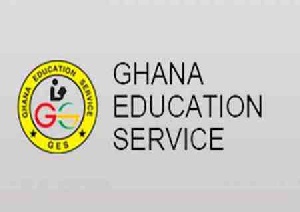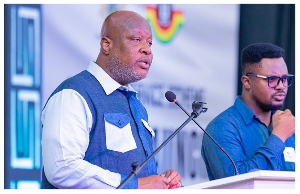The Ghana Education Service (GES) has been called upon to improve efforts at increasing girl’s enrolment in the junior high schools (JHS) especially, girls in the three northern regions.
GES, was urged to ensure that the transition rate for girls from primary schools to JHS are high to enable the girls stay in schools to acquire the needed knowledge and skills that would propel them for further academic laurels.
A SEND-Ghana study on the Ghana Partnership for Education Grant (GPEG) secured from the Global Partnership for Education, to support and improve on planning, monitoring and delivery of basic education services in selected schools in Ghana, has revealed that girls’ enrolment at the JHS level requires attention.
Findings of the study that was presented to stakeholders in Accra on Thursday by Mrs Harriet Nuamah Agyemang, Head of Programmes and Projects at SEND-Ghana however indicated that there has been slight improvement in schools enrolment at all levels except for 2013/2014 academic year, which recorded a drop in girl’s enrolment at the primary level.
“In spite of the improvement in enrolment, parity for girls is still a challenge. Apart from the primary level where parity has been attained, girl’s enrolment for especially JHS still requires attention,’’ she said.
The study was carried out in some schools in the Northern, Upper East and Upper West regions, to examine the flow of the grant from the national to school level whilst assessing the utilisation of the grants by education directorates and basic schools and the benefits of GPEG on education outcomes.
The Ministry of Education and the GES accessed a 75.5 million dollar grant for the three-year GPEG project aimed at complimenting government’s effort in providing non-salaried expenditure for 7015 schools in 75 deprived districts scattered in all the regions, except Greater Accra and Central Regions.
Mrs Nuamah Agyemang said the gender disaggregated information showed that girls’ performance in the BECE was poor, explaining that out of the 11 schools, girls’ performance was equal or better than boys in only two schools.
The report also indicated that ICT was not considered as important to most of the schools in deprived communities as 71 per cent of them did not spend any thing on ICT infrastructure of learning.
She said some schools did not see the importance of stocking school libraries.
The study recommended that since the GPEG had made some gains in most deprived schools, especially, improving on schools’ supervision and monitoring that had curb teacher absenteeism, among others, it is important that GES seeks funds to sustain important gains made in basic education.
Mr Siapha Kamara, CEO of SEND-Ghana, West Africa said, the report would help the GES and sector Ministry to address challenges and barriers that exist in the educational sector in the north, and in all other parts of the country, while making education more accessible to everyone.
Mr Kamara said: “Education should be about giving people skills and confidence to solve problems and about creativity, entrepreneurship to want to solve problems in our communities”.
He said students must be oriented to be critical thinkers who could change and recreate the economy and create jobs.
Mr Isaac Biney, Director in charge of Policy Planning and Monitoring Evaluation at the Ministry of Education said the Ministry had mapped out more programmes to identify the weaknesses in the educational sector.
Mr Kwame Agyapong, Project Coordinator, of GPEG said more than a million cedis fund had been sought to evaluate the whole GPEG project and come out with proper documentation that would well inform policy and future project.
He commended SEND-Ghana for the initiative at undertaking the study and said the recommendations would be considered.













